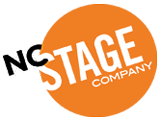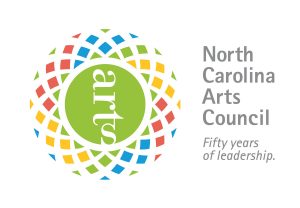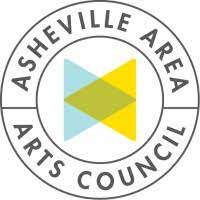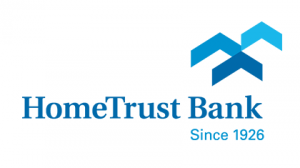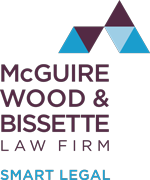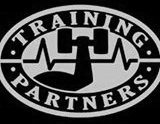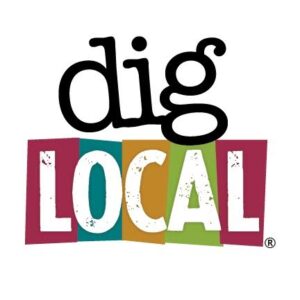Thanks for joining us for A Defining Moment, a 3-part podcast series where we ask our artists about their experiences in 2020 and the state of theatre beyond.
This week we sat down with Pat Snoyer-Black, director of Handle With Care (2019) and actor in Well (2020).
Prefer to read? See the transcript below.
Taylor Beyrer: Hi there my name is Taylor Beyrer. I’m the Audience Relations Manager for North Carolina Stage Company. I’m sitting down today with Pat Snoyer-Black who’s going to introduce herself and let’s get started. So Pat, turn it over to you. Just introduce yourself, a little bit about what you were working on at NC Stage this past year and then what you do.
Pat Snoyer-Black: Alright, well yes, I’m Pat Snoyer-Black and I had been right in the middle of the production of Well, directed by Willie Repoley, for the Immediate Theatre Project in partnership with NC Stage when everything shut down. So I was serving as an actor for that show, previously to that, I had just directed Handle With Care, which was NC Stage’s holiday show and I must say a really fabulous experience for me and a great memory now. As so, I’m a director, actor, and a retired educator. Retired from University of North Carolina Asheville and then working as an educator in schools.
TB: Awesome. Alright so first up, you’ve known NC Stage for quite some time.
PSB: From the day that Charlie and Angie – almost from the day they arrived in town.
TB: So how has NC Stage changed over the years in ways that you’ve noticed?
PSB: Oh wow, well it is true – I was here back in the day when they got started and obviously it was a very small family and friend supported, immediate circle supported, theatre company. And through amazing hard work, dedication, creativity, vision, and leadership it is stunning to see what it has grown into today. In fact, I moved away in 2005, came back 2018 and was delighted and really amazed to see how the company had grown in terms of employees, production, budget size, patronage, everything. It was just thrilling to see. So there’s been amazing growth since I first got to know them and yeah, just lots of wonderful productions and artistry along the way… And you may know I was their very very first board of directors president. We were a very tiny, small, hardworking board but yeah, was there to jumpstart the whole thing. I’m very proud to be able to say that.
TB: That’s awesome, that’s really amazing, thank you! Thank you for that. We wouldn’t be here.
PSB: Oh well, oh my gosh.
TB: So you mentioned you were working on Well in March when everything shut down. What was that experience like?
PSB: Well, it was fun. First of all, I’ve known Willie since NC Stage started as well and I had directed Willie, so it was really fun and educational and different to have roles reversed and have Willie as the director and me being the actor. I don’t think I knew anyone else in the cast when we started. I was familiar with Carin, but Jennifer Gatti was playing my daughter and we spent the entire play on stage together. I think I left a total of one minute. She was on stage the entire time with an amazing amount of pages of dialogue to learn. So having that kind of relationship was really fun. Developing that – those characters together. So yeah, it was a great experience, it was fun to be acting again, it had been many many many years since I had worn that hat. I had been doing a lot more directing so it was humbling to be reminded of the work of an actor. So it was great, it was creative, it was a nice ensemble of people and I think, just like the rest of the world, we were all sort of shocked and amazed when everything came to a sudden halt.
TB: Most definitely. Have you worked on any projects since? What have you been working on since the world shut down?
PSB: Well (laughter) Okay – I feel like an idiot saying this because when I talk to my other friends, they’re doing hours of creative writing, and they’re Zooming with like 15 other groups of people and book clubs and they may be meeting with their women’s groups or their spiritual groups from their respective places of worship. I mean, people are doing all sorts of stuff. I learned to play golf. We live – quite by accident – we live on a golf course. It’s stunningly beautiful and when it shut down, like everything else for almost two months, they were so kind to all of us on the course. They said use it as your private park, get out here and walk. So you know, we walked miles and miles when we were all truly supposed to be sheltering at home. It was a safe and convenient way to be outside, get fresh air, vitamin D, walk the dogs. So we still – I’m spending hours and days walking. Walking dogs, being outside, being in the sun. It’s really crazy times right now so anything we can do for health and self care… My husband has been a golfer his whole adult life and so when the golf course reopened and he started playing I was like “ok that’s it”. And it’s owned by two women, a woman as their golf pro, so it’s been very welcoming to women and also to beginners. So it sounds like a crazy and maybe unexpected answer because it has nothing to do with the arts. Nothing to do with civic responsibility, which makes me feel like a crazy person but I’ve been learning to play golf! And working out with my trainer. Try to be – working on health.
TB: Taking time is really important and this is a really unique time to be able to do that kind of thing.
PSB: And I’ve had a few invitations to do a few things that were scheduled in person and then they were going to be, as everything has been, re-worked for Zoom. And because they were highly participatory I decided not to pursue that because – just like the difference between Zooming a performance and being in a live performance – it just wasn’t going to be the same. And so I just passed on those. Now I should clarify, however, I want to congratulate NC Stage on the work they did with Mike Wiley. I saw that show and the fact that he could be performing live in his remote theatre and all of us with our little Zoom heads on the big screens where the audience sits and where he watches us and we watch him and we watch him watching us. The whole thing was a technological wonder, I’ve got to say. And a really interesting and fun new way to experience theatre.
TB: I really enjoyed it myself. I was very happy with how that turned out.
PSB: And you know what cracked me up is because of Zoom, the little gallery button, just like you do when you come into live theatre you go “hmmm, how’s the house? Do we have lots of audience tonight?” then you look around and say “I wonder who’s here.” Of course you can’t resist hitting the little gallery and scrolling through who are your compadres in the audience. That was funny – to discover friends sort of attending at the same time as you are, right? And I loved the use of all the cameras so we could really get the different angles of him performing and seeing close up, and then far. Now, I will tell you, the caveat to my statement is that I’ve had transformative experiences in live theatre and, as much as we look to the future with creativity and whatever it’s going to require, nothing – nothing is ever going to take the place for me of sitting with a communal experience with artists right in front of us and having that once in a lifetime, that one moment experience together. Having said that, we’re going to have to look to the future. I know there’s live things going on now, you know, parking lot performances, outdoor amphitheatre performances in the park, and I know some theatres are experimenting with people back inside, spread out. So it’ll just be interesting to see what the future holds.
TB: Yeah, so we are going to touch on a little bit about the future. And our next question dives into the definition of theatre so do you think that the definition of theatre has shifted since the pandemic began?
PSB: I think you can tell a story and commune with other people in telling that story in many many different ways, so I don’t know that the definition has changed. I think the delivery system has changed. But, you know, telling a great story and being able to share someone else’s perspective and point of view – and god knows we need that right now more than ever, to try to see life from each other’s shoes, in each other’s shoes. I don’t know that that’s changed, I just think how we experience it has changed. I am constantly amazed at the creativity of arts folk and all of us in performing arts and anyone that’s had anything to do with a nonprofit will know that “less is more” is a very familiar mantra and it usually breeds amazing creativity. I just feel like that’s happening all around us, due to the shift the pandemic is requiring and how we tell our stories.
TB: And so this next question is – and I’m going to rephrase it a little after I say it so – how do you typically define what you do and how has that definition changed or stayed the same over time? But really, that question just gets down to: how are you maybe adapting the definition of an actor or a director in this new pandemic world of theatre?
PSB: Well, I’ve been watching others explore that. I haven’t personally done that yet – act or direct – within this pandemic sort of new social media world, but I’ve watched friends and other companies I’ve worked with. What’s interesting is it didn’t, to me – seem to me their roles are still very clearly defined. One of my friends was doing a one-man show he had scenery behind him but there were also all sorts of creative uses of projections and computer imagery that were helping to make up the world around him, where traditional scenery might have been. And the director was in a completely different location doing all of this through camera work and through social media work, directing him in this play. And so, it seems to me that the director was very much still in directing mode: helping interpret character, helping with the staging, helping – working collaboratively with the whole team of the design and the look of it. The actor was still doing what he does, creating his character and finding the motivations and finding his voice and his physical movement and all of the things he always did. So it’s interesting, once again, people are doing what they’ve always done but they’re doing it with new parameters and new environments. That was my impression from watching that work. And then, it’s been a riot: all these out of work Broadway actors getting online and creating great musical scenes with each other and singing. But they’re all still in their little Zoom boxes right? But there they are – or gathering on the steps of the ticket booth in Times Square and belting out showtunes. You know, they’re still using – those are still musical theatre skills, they’re still musical theatre actors, they’re just doing what they need to do either for sanity or income… So I think everybody uses the same chops, really. You know what I mean? The same skills. But the whole world is learning a whole lot more about computers and technology and apps you know? Microphones and headphones and cameras and all that stuff.
TB: Yeah, definitely.
PSB: I think that’s all changed. But I really believe, you know, the skills and the jobs are fairly clear still. I just haven’t had a chance to experience that quite yet in this pandemic world. We’ll see what the future holds.
TB: It’ll be interesting to see what happens next. So the next question is: what is your greatest fear over the next several years? So what are you not looking forward to or something that has come up for you when you’re looking at the future of theatre in a pandemic world. What comes up to you that you’re afraid of?
PSB: Hmm, well, there’s the constant – I don’t want to say struggle – but the constant reminder and effort about how essential the arts are to our lives and one wonders about economy, incomes, you know. We’re watching everything – all sorts of businesses around us – close. Restaurants, service industry, retail. So one concern would certainly be the financial ramifications of what happens with and to the arts as we sort out this new reality and people’s – people trying to find their equilibrium again. Financially, especially, but also in terms of defining what is essential in their lives and what we need in our lives. So that’s one big fear. I can’t think of a time when we need theatre and the arts more. I mean it’s such a turbulent time, our country’s so divided. It seems to me there’s never been a more important time that we sit together virtually or in person and watch the journeys of people and characters that we may or may not identify with and find common ground through that experience. So, that’s one of my hopes for the future.
TB: That’s my next question! Is: what do you hope for in the future?
PSB: Well having said I’m worried about finances I’m really hoping that we can sustain all the arts and then that the arts will help bring us together. As a society, as a country.
TB: And then one last question: how are you doing? These are tough times and I finish every interview with this: just, how are you doing?
PSB: Very well, thank you. Within the confines of my bubble and that brings up great guilt or frustration because there’s so much desire to get out of the bubble, get out of this bubble. It feels quite limiting at times but it is what we’ve created based on the pandemic. I mean, my husband is 70, I’m 63, and we’re both amazingly healthy – knock on wood – but there’s things to be considered for common sense, safety, and so we’re doing well. I feel very very blessed that we have the resources we need right now to persevere. And we are trying to help others, by the way, in our own little quiet tiny way that we feel we can as we are able and I just wish we could be doing more. I wish we could be out and about more and feel comfortable with that. We’re out and about, you know, to some extent. But we’re doing okay, thank you. How are you doing?
TB: I am great, we’re having a really nice time over here at NC Stage, we’re hoping to keep our audiences engaged and hoping to offer more for them – we’re working really hard to make sure that that happens, so thank you for asking, we’re doing really really well.
PSB: Well I’m glad to hear it and as you know, I am happy to do whatever I can to help the theatre company keep chugging along.
TB: Well thank you, that concludes our interview. I’m going to go ahead and stop this recording but I hope you’ll stick around just a moment. Thank you so much for sitting down with me today.
PSB: Thank you for asking!
TB: Of course.




